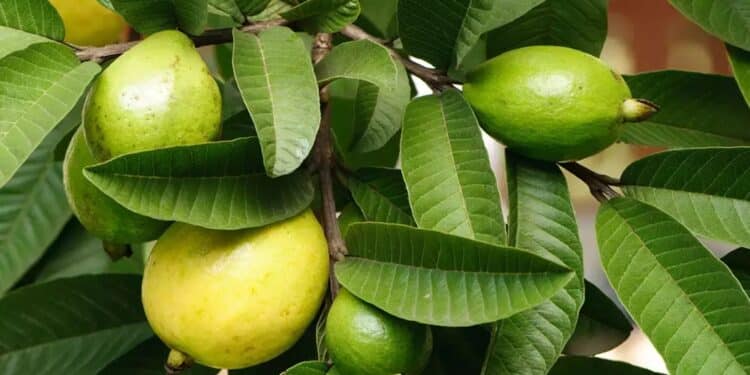Guava leaves have been a staple in traditional medicine for centuries, utilized by various cultures for their therapeutic properties. Ancient civilizations, particularly in Asia and Central America, recognized the value of these leaves in treating a wide array of ailments, ranging from digestive issues to skin conditions. The historical use of guava leaves in herbal remedies speaks volumes about their longstanding reputation as a natural healer.
In recent years, modern science has turned its attention to guava leaves, uncovering a wealth of nutrients and bioactive compounds that contribute to their medicinal benefits. Rich in antioxidants, vitamins, and essential minerals, these leaves have been found to possess anti-inflammatory, antimicrobial, and anti-diabetic properties. This growing body of scientific evidence is shedding light on why guava leaves have been revered in traditional medicine.
Understanding the health benefits of guava leaves is crucial for those seeking to promote natural and holistic health practices. As people increasingly look for alternative and complementary approaches to health, the role of guava leaves as a potent natural remedy becomes more significant. By integrating guava leaves into modern health practices, individuals can benefit from their numerous therapeutic properties, supporting overall well-being naturally and effectively.
Guava Leaves: Nutritional and Chemical Composition
The leaves are a treasure trove of essential nutrients and bioactive compounds that contribute significantly to their health benefits. Among the most notable components is Vitamin C, a potent antioxidant that plays a crucial role in boosting the immune system and protecting cells from oxidative stress. Studies have shown that guava leaves contain higher levels of Vitamin C compared to the fruit itself, making them an excellent source of this vital nutrient.
In addition to Vitamin C, guava leaves are rich in a variety of minerals such as potassium, calcium, and iron. Potassium is essential for maintaining proper heart function and regulating blood pressure, while calcium is fundamental for bone health. Iron, on the other hand, is crucial for the production of haemoglobin and the prevention of anaemia.
Antioxidants in the leaves, including flavonoids like quercetin, have garnered significant attention for their ability to neutralize free radicals and reduce inflammation. These antioxidants are important for preventing chronic diseases such as cancer and heart disease. Quercetin, in particular, has been studied for its anti-inflammatory and anti-cancer properties, providing a scientific basis for the traditional use of guava leaves in herbal medicine.
Another group of bioactive compounds found in guava leaves is tannins. Tannins have astringent properties that can help in managing gastrointestinal disorders and promoting oral health. They work by contracting tissues and reducing inflammation, thus providing relief from conditions like diarrhoea and gum disease.
Scientific studies have supported these claims by analyzing the chemical composition of guava leaves. For example, a study published in the Journal of Medicinal Plants Research highlighted the presence of these nutrients and bioactive compounds, confirming their potential health impacts. Such research underlines the importance of guava leaves in both traditional and modern medicine, showcasing their role in promoting overall health and well-being.
Major Health Benefits of Guava Leaves
Guava leaves have long been celebrated for their numerous health benefits, in traditional medicine and modern scientific research. Their rich content of antioxidants, vitamins, and other essential compounds makes them a potent natural remedy for various health issues. Here, we explore some of the key health benefits of guava leaves.
Improving Digestive Health
Guava leaves are known for their ability to enhance digestive health. They contain compounds that can help reduce the severity of diarrhoea and other gastrointestinal issues. Studies have shown that the leaves possess antimicrobial properties, which help to combat pathogens responsible for digestive disorders. Additionally, the high fibre content in guava leaves aids in promoting regular bowel movements and overall gut health.
Aiding in Weight Loss
For those looking to shed some extra pounds, guava leaves can be a helpful ally. They are known to inhibit the conversion of complex carbohydrates into sugars, which maintain a balanced blood sugar level. By preventing spikes in insulin, guava leaves can contribute to weight management. Moreover, they are low in calories and high in dietary fibre, which promotes a feeling of fullness and reduces overall calorie intake.
Managing Diabetes
The leaves are particularly beneficial for individuals with diabetes. Research indicates that the leaves can help lower blood sugar levels by improving insulin sensitivity. Its bioactive compounds such as quercetin and other flavonoids enhance their anti-diabetic properties. Regular consumption of guava-leaf tea has been shown to reduce fasting blood sugar levels significantly, making it a valuable natural supplement for diabetes management.
Boosting Heart Health
Heart health is another area where guava leaves make a significant impact. They are rich in antioxidants like vitamins C and E, which help in reducing oxidative stress and preventing damage to the heart. Additionally, the leaves have been shown to lower bad cholesterol (LDL) levels and increase good cholesterol (HDL) levels. This dual action helps to maintain a healthy cardiovascular system and reduces the risk of heart disease.
Enhancing Skin Health
Guava leaves offer remarkable benefits for skin health as well. Their antibacterial and anti-inflammatory properties make them effective in treating acne and other skin infections. The leaves can be used to make a natural topical application that soothes the skin, reduces redness, and prevents the growth of acne-causing bacteria. Moreover, the antioxidants in guava leaves help combat free radicals, thereby slowing down the ageing process and promoting youthful, radiant skin.
Providing Anti-inflammatory and Antimicrobial Properties
The anti-inflammatory and antimicrobial properties of guava leaves are well-documented. These properties make them useful in treating various inflammatory conditions, such as arthritis and sore throats. The leaves contain compounds like quercetin and flavonoids that help reduce inflammation and pain. Additionally, their antimicrobial action helps to fight infections caused by bacteria, fungi, and viruses, making them a versatile natural remedy.
In conclusion, they are a powerhouse of health benefits, supported by scientific research and traditional uses. Their ability to improve digestive health, aid in weight loss, manage diabetes, boost heart health, enhance skin health, and provide anti-inflammatory and antimicrobial properties makes them an invaluable addition to a healthy lifestyle.
How to Incorporate Guava Leaves into Your Routine
Incorporating guava leaves into your daily routine can be simple and rewarding due to their myriad health benefits. Guava leaves are available in various forms, including fresh leaves, dried leaves, powders, and teas. Each form offers unique advantages and can be used in multiple ways to suit your lifestyle and health needs.
For those who prefer fresh leaves, guava leaves can be harvested directly from the plant. To prepare a simple tea, rinse a handful of fresh leaves thoroughly, then boil them in water for about 10-15 minutes. Strain the mixture and enjoy it warm. This tea can be consumed twice daily and is known for its digestive and anti-inflammatory benefits.
Dried guava leaves can be as effective and are often easier to store. They can be purchased from health stores or online. To prepare a tea, use approximately one tablespoon of dried leaves per cup of boiling water, steep for 10 minutes, strain, and drink. Consuming this tea regularly can help with weight management and blood sugar control.
Guava leaf powder is another convenient option. It can be added to smoothies, juices, or even sprinkled over meals. A typical dosage is about one teaspoon per day, but it’s essential to start with a smaller amount to assess tolerance. The powder form is particularly useful for promoting skin health and reducing acne when used topically as a mask or scrub.
Guava leaf tea bags are also widely available and offer a quick and easy way to enjoy the benefits of guava leaves. Simply steep a tea bag in hot water for about 5-7 minutes, and you’re ready to go. This method is perfect for those on the go or who prefer a no-fuss approach.
When using guava leaves for health purposes, it’s crucial to adhere to recommended dosages and be aware of any potential side effects. While guava leaves are generally safe, some individuals may experience mild allergic reactions or gastrointestinal discomfort. If you’re pregnant, nursing, or taking medication, consult your healthcare provider before adding guava leaves to your routine.
By integrating the leaves into your daily regimen, you can harness their powerful health benefits in a way that suits your lifestyle and preferences.










